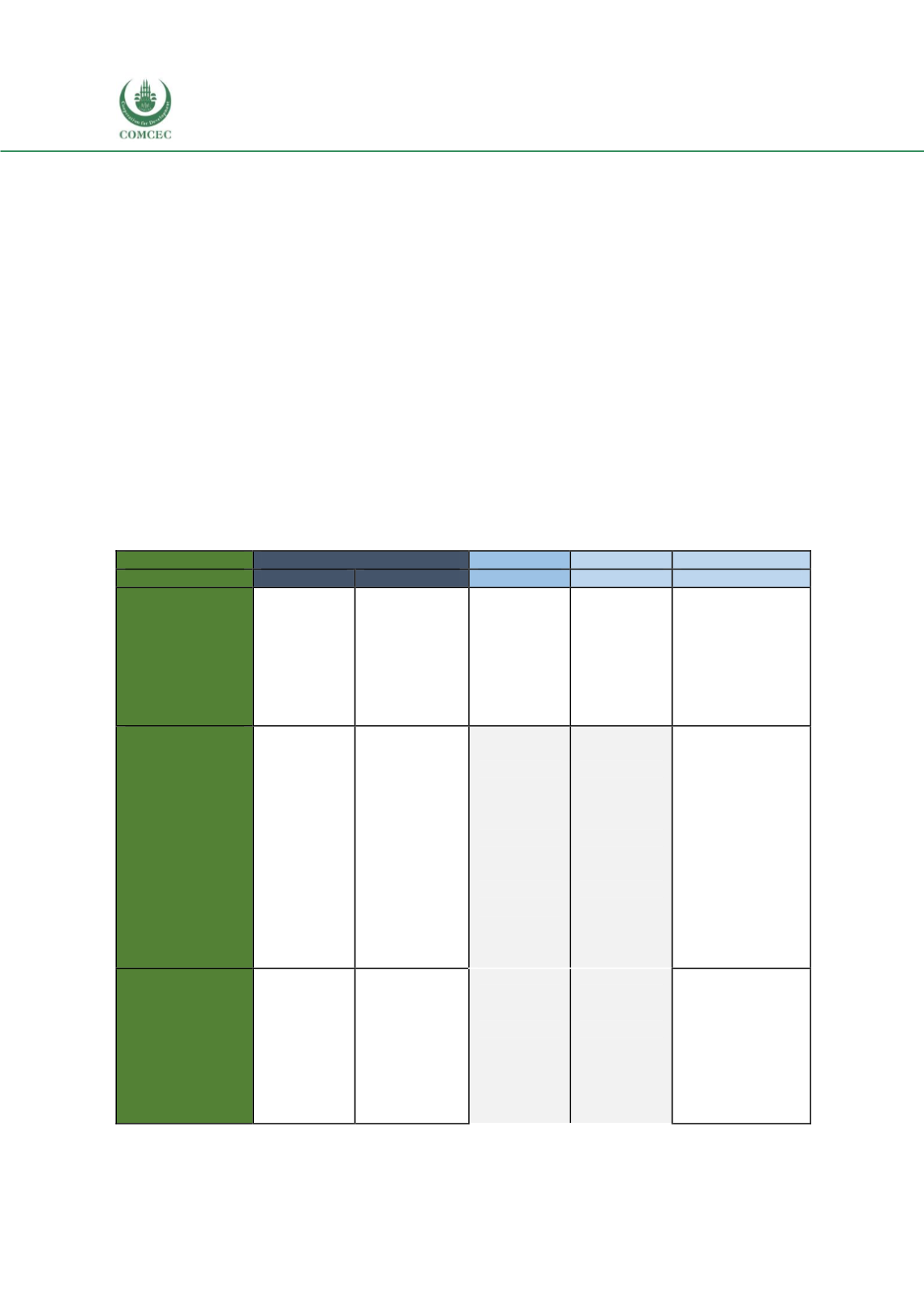

Increasing the Resilience of the Food Systems
In Islamic States in Face of Future Food Crises
128
Building Resilience
The lessons learned from the U.S. and Ireland for building resilience show that R&D and human
capital development are critical nodes of building resilience of food systems in the long term.
The OIC experience has, with some variation, sought to establish a human capital pool of
farmers. However, particularly in the cases of Indonesia and Niger, it has beenmore effective in
achieving baseline stability. Accordingly, both countries have focused their resilience on higher
priority areas of boosting self-sufficiency in production and removing barriers to trade.
The level of maturity of the food system in each OIC countries, as reflected by the segmentation
into four distinct groups, determine the priorities for building resilience . OIC-B1 and B2grouped
countries need to establish immediate stability, while more developed countries can prioritize
R&D efforts and human capital development.
Mechanisms must be in place at an OIC-level to support the varied needs of each segment, and
to work effectively with multi-lateral organizations that already support the most vulnerable
members of the OIC.
Table 69: Government Entities Responsible for Food Security
Category
Developed Countries
OIC – A1
OIC – A2
OIC – B1
Country
U.S.
Ireland
Indonesia
Niger
Oman
Core Agency
USDA
Agriculture
and Food
Development
Authority
BKP - Center
for Food
Availability
and
Vulnerability
MCC
Ministry of
Agriculture and
Fisheries
Research council
of Oman
OFIC
R&D & Capacity
Building Efforts
$4 billion by
the U.S.
government;
$6.4 billion
by the
private
sector
Close
partnership
with U.S.
universities
Numerous
innovation
labs - National
Innovation
Hub;
Consumer
Food
Production
Center
Program to
boost food
security –
focused on
data and
knowledge
sharing
UPSUS
program to
boost rice,
corn and
chili
production
10-year plan
to boost
availability
of seeds and
fertilizer
USAID
collaboration
to remove
trade
barriers
Research council
established to fund
agricultural
research
$34 million spend
on agricultural
research in 2012
(latest available
data)
Human Capital
Extensive
programs
including
youth
agriculture
organization
Post-graduate
fellowships by
Agriculture
Dept
Direct
professional
training
courses
Agricultural
Development
Schools set
up
Limited
evidence of
human
capital
development
Close collaboration
between Ministry
of Agriculture and
Sultan Qaboos
University on
agriculture
programs
Source: DinarStandard synthesis and analysis
















